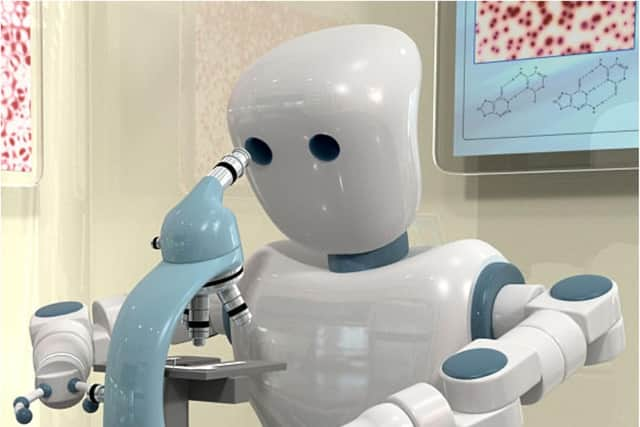Doncaster one of top places in UK where you could lose your job to a robot
and live on Freeview channel 276
Waiters, shelf stackers and people working in retail are the most likely to be replaced by automated systems in the future, according to the new research into AI employment.
The study, funded by trade electrical suppliers ElectricalDirect, found that while manual and repetitive tasks were easy to replace with robots, doctors and teachers were safe 'for now'.
Advertisement
Hide AdAdvertisement
Hide AdBar staff and farm workers are also at risk, according to the study – and Doncaster is ranked as one of the top places in the UK where jobs are at risk from robots.


At the other end of the scale, with those in the most 'secure from automation' roles are doctors, teachers, dentists, psychologists and physiotherapists.
The researchers found that places in the north, particularly Wigan, Doncaster and Sunderland at the greatest risk from robots.
The south fares significantly better, with London, Watford and Oxford the least at risk of job losses due to mass automation as AI and robotics improve.
Advertisement
Hide AdAdvertisement
Hide AdBy analysing 20 million jobs from around the country, the team discovered that roles with repetitive and routine tasks will be the first in line for automation, with some industries, such as manufacturing, starting this process decades ago.
The rise of AI poses an existential threat to the UK jobs market, as it starts to make a large number of jobs a thing of the past.
Wigan in Greater Manchester tops the list as the city where there is the highest number of jobs at risk of a robot takeover. This is due to the high number of roles requiring minimal training and involving routine tasks, with 50 per cent of jobs at risk.
Doncaster joins Wigan at 50 per cent followed by Sunderland close behind at 49 per cent.
Advertisement
Hide AdAdvertisement
Hide AdDominick Sandford, Director ElectricalDirect, trade electrical suppliers, who commissioned the study, said: “In the long term, such huge technological leaps forward in the way our services are provided and consumer demands are met could change the entire nature of our workforce and our entire economy.”